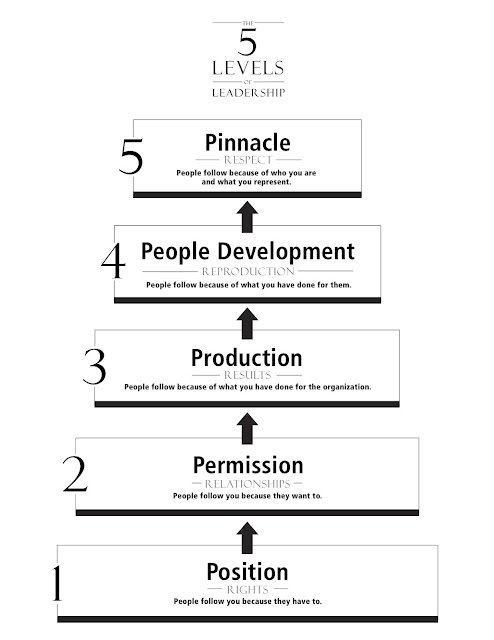#1 - Connect with yourself before trying to connect with others.
- Before you start building relationships with others, you need to know and like yourself first. You must become the kind of person you would like to spend time with.
- There are 5 components of connecting to yourself:
- Self-awareness - know you personality, temperament, strengths, weaknesses
- Self-image - deal with your personal issues so that you can be positive about yourself
- Self-honesty - look at yourself realistically and face reality, no matter how hurtful it can be
- Self-improvement - make a commitment to grow in your ability to develop relationships
- Self-responsibility - accept that you're responsible for your actions and attitudes
#2 - Develop a people-oriented leadership style.
- Don't rely on rules, system or stick to lead people.
- They use personal touch to deal with people - they listen, learn and lead.
- Always take people into account when doing things - where they are, what they believe, what they're feeling.
- Think more in terms of people's emotions and human capacity, and less in terms of systems and regulations.
#3 - Practice the golden rule.
- Treat others as you would like to be treated.
- Motivate people, not manipulate people.
- Make people feel respected.
#4 - Become the chief encourager of your team.
- Lift people up by giving them affirmation.
- People are naturally attracted to people who give them confidence and make them feel good about themselves.
#5 - Strike a balance between care and candor.
- What makes a family great isn't what makes a team great. Families value community over contribution. Businesses value contribution over community. The best teams strike a balance.
- Just because you care about people doesn't mean you let them work without responsibility or accountability.
- Care without candor creates dysfunctional relationships. Candor without care creates distant relationships. Care balanced with candor creates developing relationships.
- Caring values the person while candor values the person's potential.
- Caring establishes the relationship while candor expands the relationship.
- Caring defines the relationship while candor directs the relationship.
- Caring should never suppress candor while candor should never displace caring.
- Candor is a two-way street. Instead of just giving feedback, you should also solicit feedback from people.
When you build strong relationships with your team, your team will be motivated to work with you towards the team's common goal.






